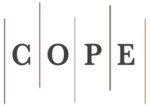Pengaruh Lingkungan, Disiplin, Dan Kepuasan Terhadap Kinerja Pegawai Pada Kantor Perum KPH Perhutani Kota Probolinggo
Abstract
Human resources (HR) provide great potential for driving factors supporting company activities which must be utilized as best as possible through synergy with the environment. The performance of employees supports the company's success in achieving its goals on an ongoing basis. The type of research used is an associative quantitative approach. The sampling technique used was a saturated sampling technique, the sample in this study was all employees of Perum KPH Perhutani Kota Probolinggo, totaling 73 people. The data sources used come from primary data and secondary data. Data was collected using a questionnaire and processed using data analysis methods in the form of validity tests, reliability tests, classical assumption tests, multiple regression analysis, coefficient of determination (R Square) and hypothesis testing. The research results show that there is an influence between the Work Environment (X1), Work Discipline (X2) and Job Satisfaction (X3) which simultaneously have a significant effect on Employee Performance (Y) where the Fcount value = 22.310. Then, the partial test shows that the Work Environment variable (X1) has a significant effect on Employee Performance (Y) with a tcount = 6.169 and Discipline (X2) partially has a significant effect on Employee Performance (Y) with a tcount = 5.870. Then, the partial test shows that the Job Satisfaction variable (X3) has a significant effect on Employee Performance (Y) with a t value = 2.683. In the results of the study, the dominant influence of the Work Environment variable (X1) has a dominant influence on Employee Performance (Y).
Keywords: Work Environment, Discipline, Job Satisfaction, Employee Performance.
References
Mahmudah Enny, Manajemen Sumber Daya Manusia. Surabaya: Ubhara Manajemen Press, 2019.
Malayu Hasibuan, Manajemen Sumber Daya Manusia, Edisi Revisi. Jakarta: Bumi Aksara, 2017.
Malayu Hasibuan, Manajemen Sumber Daya Manusia, Edisi Revisi. Jakarta: Bumi Aksara, 2021.
Wibowo, Manajemen Kinerja, Edisi Kelima. Jakarta: Pt Rajagrafindo Persada, 2016.
Dkk Feni Rika Fiantika, Metodologi Penelitian Kualitatif. Padang, Sumatera Barat: Pt Global Eksekutif Teknologi, 2022.
Anwar Prabu Mangkunegara, Manajemen Sumber Daya Manusia Perusahaan. Bandung: Pt Remaja Rosdakarya, 2021.
Lijan Poltak Sinambela, Manajemen Sumber Daya Manusia: Membangun Tim Kerja Yang Solid Untuk Meningkatkan Kinerja. Jakarta: Pt Bumi Aksara, 2016.
H. Tanjung, “Pengaruh Disiplin Kerja Dan Motivasi Kerja Terhadap Prestasi Kerja Pegawai Pada Dinas Sosial Dan Tenaga Kerja Kota Medan,” J. Ilm. Manaj. Dan Bisnis, Vol. 15, No. 1, 2017.
R. Nabawi, “Pengaruh Lingkungan Kerja, Kepuasan Kerja Dan Beban Kerja Terhadap Kinerja Pegawai,” Maneggio J. Ilm. Magister Manaj., Vol. 2, No. 2, Pp. 170–183, 2019.
Donni Juni Priansa, Perencanaan & Pengembangan Sdm. Bandung: Alfabeta, 2020.
A. K. Edison, Manajemen Sumber Daya Manusia: Strategi Dan Perubahan Dalam Rangka Meningkatkan Kinerja Pegawai Dan Organisasi. Bandung: Alfabeta, 2016.
M. Yuliana, L. B. Hasiholan, And E. Gagah, “Pengaruh Lingkungan Kerja, Disiplin Kerja, Dan Kepuasan Kerja Terhadap Kinerja Karyawan Bmt Taruna Sejahtera Ungaran,” J. Manage., Vol. 3, No. 3, 2017.
N. Syafrina, “Pengaruh Disiplin Kerja Terhadap Kinerja Karyawan Pada Pt. Suka Fajar Pekanbaru,” Eko Dan Bisnis Riau Econ. Bus. Rev., Vol. 8, No. 4, Pp. 1–12, 2017.
P. M. Sahangggamu And S. L. Mandey, “Pengaruh Pelatihan Kerja, Motivasi, Dan Disiplin Kerja Terhadap Kinerja Karyawan Pada Pt. Bank Perkreditan Rakyat Dana Raya,” J. Emba J. Ris. Ekon. Manajemen, Bisnis Dan Akunt., Vol. 2, No. 4, 2015.
I. K. Wijaya, “Pengaruh Kepuasan Kerja Terhadap Kinerja Karyawan Cv Bukit Sanomas,” Agora, Vol. 6, No. 2, 2018.
R. Rosmaini And H. Tanjung, “Pengaruh Kompetensi, Motivasi Dan Kepuasan Kerja Terhadap Kinerja Pegawai,” Maneggio J. Ilm. Magister Manaj., Vol. 2, No. 1, Pp. 1–15, 2019.
Rahmansyah, A. I., Balqis, N. S., Rahajeng, Y., Elmas, M. S. H., & Masluha, S. (2022). The Effect of Non Perfoming Financing and Financing to Deposit Ratio On Return On Assets. Assets : Jurnal Ilmiah Ilmu Akuntansi, Keuangan Dan Pajak, 6(2), 100–107. https://doi.org/10.30741/assets.v6i2.849
Rahmansyah, A. I., Wardayati, S. M., & Miqdad, M. (2021). Audit Committee, Board, and Audit Report Lag. Wiga : Jurnal Penelitian Ilmu Ekonomi, 11(1), 19–30. https://doi.org/10.30741/wiga.v11i1.577
Wiratna Sujarweni, Metodologi Penelitian Bisnis & Ekonomi. Yogyakarta: Pustaka Baru Press, 2015.
Sugiyono, Metode Penelitian: Kuantitatif, Kualitatif Dan R&D. Bandung: Alfabeta, 2017.
D. Sunyoto, Metodologi Penelitian Akuntansi. Bandung: Pt Refika Aditama Anggota Ikapi, 2016.
M. Abdurrahman, Analisis Korelasi, Regresi, Dan Jalur Dalam Penelitian ; Dilengkapi Aplikasi Program Spss. Bandung: Cv Pustaka Setia, 2017.









